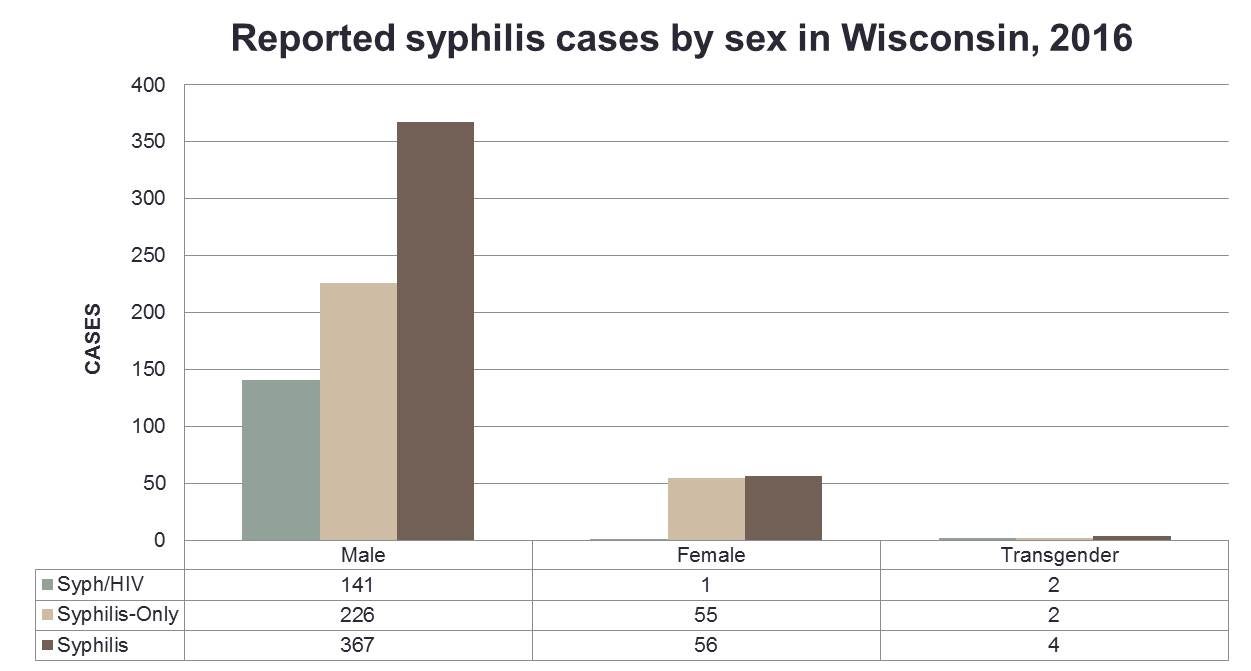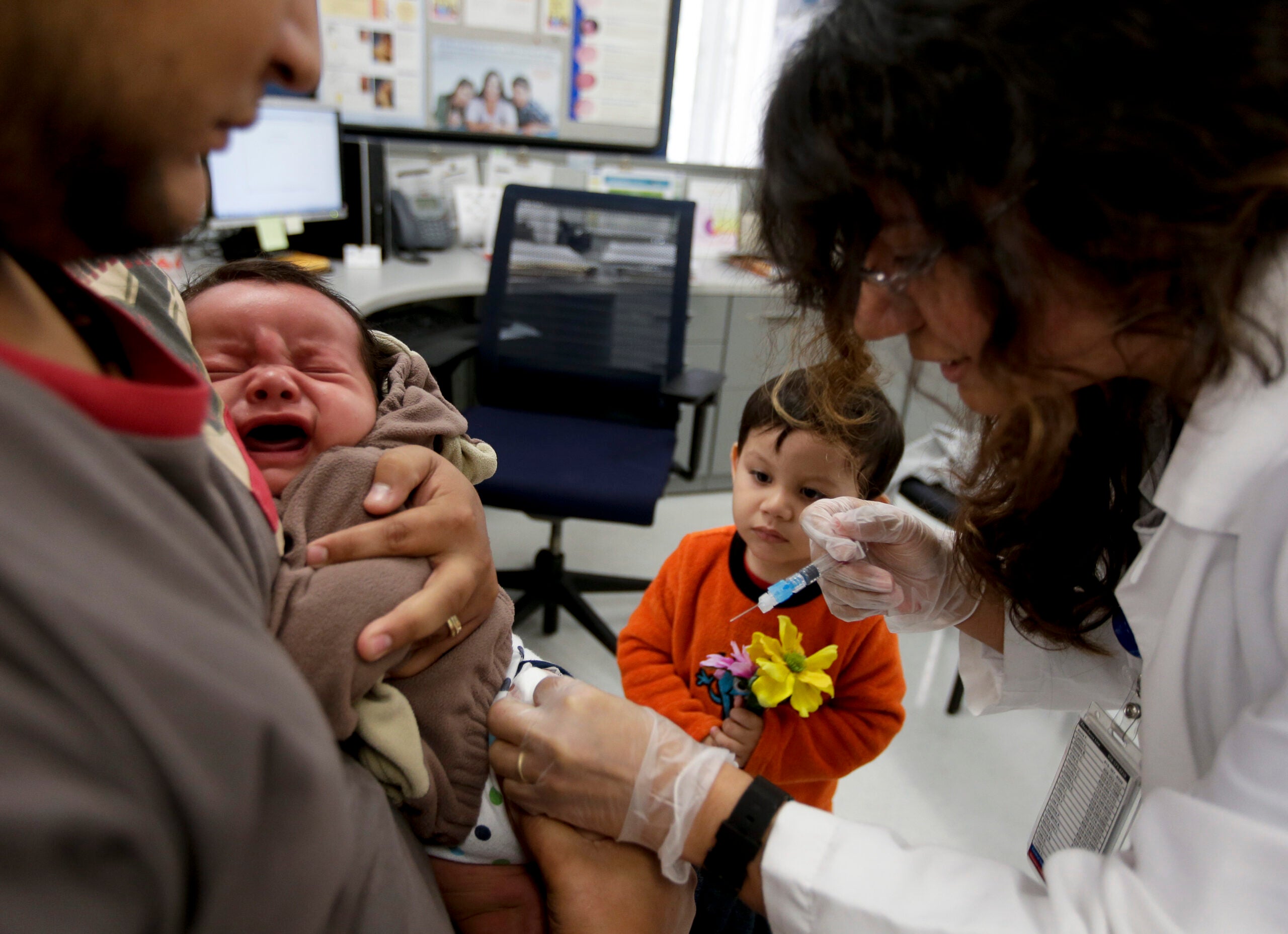The number of reported syphilis cases in Wisconsin increased dramatically in 2016, according to a state Department of Health Services report. In Wisconsin, syphilis infections went from 270 in 2015 to 427 in 2016.
This is an increase that’s also reflected nationally. The U.S. Centers for Disease Control and Prevention reported in 2015 that there was a 19 percent increase in primary and secondary syphilis, early stages of the infection characterized with sores and rashes.
Despite the statewide increase, it’s hard for health professionals to pinpoint one cause.
Stay informed on the latest news
Sign up for WPR’s email newsletter.
Brandon Kufalk, Wisconsin STD Control Section public health educator, attributed the increase to several factors, including people who aren’t aware they’re infected. Syphilis does present physical symptoms, like painless sores, but those can go overlooked. Kufalk also said the state has pushed for more rapid testing, which can be done in 15 minutes, and implemented better reporting practices, which could contribute to this increase.
Men who have sex with men are considered to be the most likely to contract syphilis both nationally and in Wisconsin, according to Kufalk. In the 2016 report, men had the majority of reported syphilis cases with 367 infections compared to women with 56 reported infections.
“By educating people about what syphilis is, we help them not only understand how they acquired the infection but also convince them to implement strategies to prevent this from happening again in the future,” Kufalk said.
Paul Hunter, a University of Wisconsin-Madison associate professor of family medicine and community health, works with physicians and nurses in Milwaukee to combat this infection. He said he is concerned about this rate increase among men because it could have larger implications.
“The pattern this time around is men who have sex with men, then all men, and then women and pregnant women,” Hunter said.
If a woman with untreated syphilis gets pregnant, there’s a risk for congenital syphilis, which is when the mother passes on syphilis to the infant during pregnancy. This sexually transmitted infection (STI), if caught in an early stage, is treatable with antibiotics, but an infant with congenital syphilis risks death or permanent damage. CDC officials recommend all women get tested for syphilis at the first pre-natal doctor visit.
Health professionals are required to report when someone tests positive for syphilis. Kufalk, who covers all of Wisconsin except the southeastern region, follows up with those infected to find out how they might have contracted the infection and who they might have spread it to.
State officials are trying to ramp up investigations and implement more rapid testing.
“We know that the more testing that’s increased, the more cases we find, the sooner we stop the spread of disease among other people,” Kufalk said.
Wisconsin Public Radio, © Copyright 2025, Board of Regents of the University of Wisconsin System and Wisconsin Educational Communications Board.




